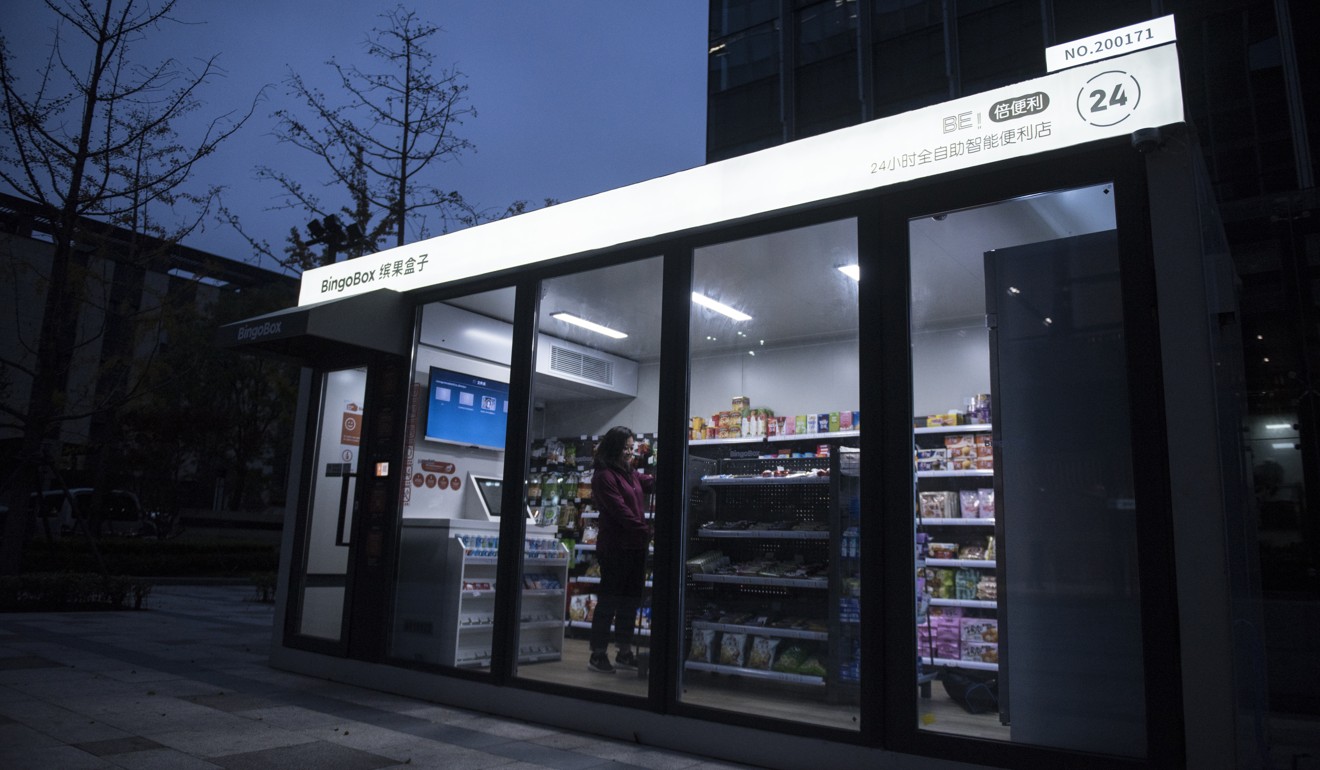
Automated shops, drone delivery on the menu as China’s JD.com looks to boost e-commerce in Hong Kong
The company says it is also working to get Hong Kong fashion brands on its platform to connect to mainland Chinese buyers
JD.com, China’s second-largest e-commerce platform, is planning to bring technologies such as unstaffed stores and drone delivery services to Hong Kong as it steps up its push into online commerce in the city, amid fierce competition for shoppers’ dollars.
Ben Chuk, senior business development manager at JD.com, said on Tuesday that the company is also targeting Hong Kong’s fashion brands as the next group of merchants it wants to bring onto the platform to connect to mainland Chinese buyers. It has already signed up other big local brands such as food and beverage company Maxim’s and beauty products retailer Sa Sa International.
“As JD.com transforms itself beyond an e-commerce platform, we will start opening our smart retail technologies to Hong Kong clients, especially to bigger corporations and close partners,” said Chuk. “For instance, unstaffed convenience stores that have already been in operation in the mainland – we are exploring the possibility to partner with Hong Kong brands in setting up such stores.”
Last month JD signed an agreement with Hong Kong’s Fung Retailing, which oversees over 3,000 stores in Hong Kong and overseas, to develop artificial intelligence-driven retail solutions and build an AI retail centre.

A number of top Hong Kong brands, including Maxim’s and jewellery chain Chow Sang Sang, are also present on Tmall, the retail platform launched in 2014 by Alibaba Group Holding, JD’s main rival and China’s biggest e-commerce site, as an extra channel to reach the China market.
Smaller merchants in the city are also looking to e-commerce to boost their presence across the border. Fashion start-up Grana, for example, which launched a flagship store on Tmall in 2017, aims to tap into the mainland Chinese millennials market, according to founder and CEO Luke Grana.
Retail sales in Hong Kong have slumped over the past two years, in tandem with declines in the number of visitors from mainland China, but have begun this year with a rebound that is expected to continue.
Michael Cheng, Asia-Pacific and Hong Kong/China consumer markets leader for PwC, said that Hong Kong was a relatively small market for e-commerce, but there is potential for online retailing in the city.
“Hong Kong will continue to serve as a platform and window for overseas brands to reach out and get closer to Chinese consumers and for those merchants hoping to expand into the mainland market through Hong Kong. E-commerce platforms may well be their first and easier step to take,” Cheng said.
During the Lunar New Year holiday in February, gold was the most popular product category for Chinese consumers buying from Hong Kong brands on JD.com, followed by women’s shoes, menswear, furniture and diamonds, JD.com said last month. Jeweller Chow Sang Sang was the most popular Hong Kong seller on the platform.
Alibaba owns the South China Morning Post.

